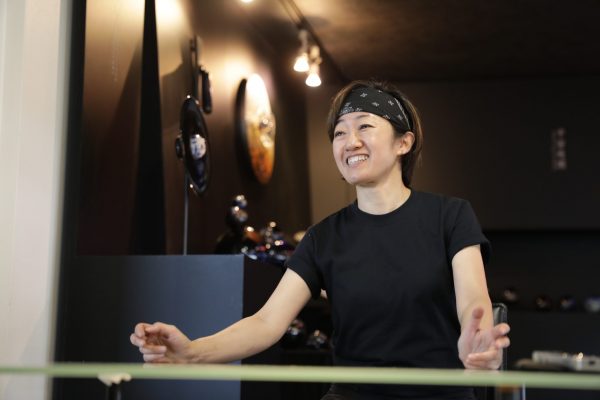2022 Healthy Aging Prize for Asian Innovation
About the Award
HAPI is an award program designed to recognize and amplify innovative policies, programs, services, and products that address the challenges facing aging societies.
This prize is an initiative of the Economic Research Institute for ASEAN and East Asia (ERIA) and the Japan Center for International Exchange (JCIE), carried out under the auspices of the Japanese government’s Asia Health and Wellbeing Initiative (AHWIN). The selection of awardees was carried out by an international committee of experts.
Congratulations to all of our winners!
2022 GRAND PRIZE
Technology & Innovation
ORANGE LINKS | Japan
QR Code Jell Nail Stickers for People with Dementia
Each year, thousands of people living with dementia wander off, becoming disoriented and unable to find their way home. Japanese authorities received more than 17,000 such missing person reports in 2020. To solve this problem, ORANGE LINKS created a small, waterproof sticker that is affixed to a fingernail and includes a personalized QR code. When scanned with a smartphone, it gives contact details for a designated contact person (e.g., a family member or care facility), without disclosing any personal information. The sticker lasts for two weeks, so it cannot be left behind, unlike other wearable devices. ORANGE LINKS is also working with local governments, the police, and a local railway company to train people on how to assist a wandering person with dementia. The innovation was selected as an example of using existing technologies in a creative, cost-effective, and accessible way to address a problem facing aging populations.
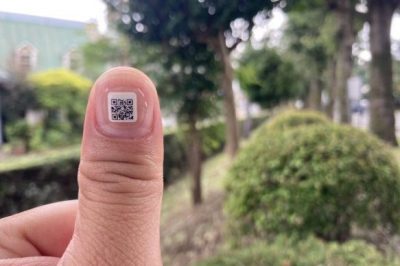
Community-Based Initiatives
Longzhen Senior Care | China
One-Stop Community Elderly Service Program
In the Jinsong region of Beijing, thousands of people aged 80 and above live in apartment complexes without elevators, making it hard to access daily necessities. Longzhen Senior Care, operator of a community-based eldercare center, realized that many of the area’s oldest old were aging at home and were cut off from various services available in the community. In response, they developed a free one-stop community elderly service program. They assess each person’s needs and provide liaisons (combining social workers and volunteers) to arrange for everything from adult daycare and home medical services to handymen, emergency alert response, home-delivered meals, legal assistance, shopping assistance, and other services. The project was selected in recognition of its responsiveness to the voices of the older residents in the community and the needs of local businesses—specifically those that offer quality services with compassion.
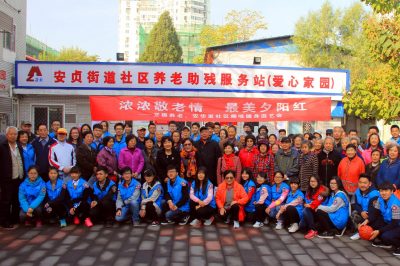
Supporting Self-Reliance
Shanghai Jinmei Care for the Elderly | China
Memory Home
In China, although an estimated 10 million people are affected by dementia, awareness and understanding of the disease has lagged. Jinmei Care is working to change that, adapting foreign models to the local environment to create “Memory Homes”—community-based physical spaces where social workers provide those with dementia and their families with professional support and diverse programs, covering almost all aspects related to dementia, from pre-diagnosis advocacy and education to post-diagnosis support and intervention. They also promote greater public understanding and help destigmatize dementia through the creation of a Memory Café and a volunteer network of “Dementia-Friends.” Jinmei Care has been recognized by the Shanghai government, which is supporting the expansion of Memory Homes as part of its Dementia-Friendly Community Construction Project. The model was selected as a model that offers much-needed support for those dealing with dementia and their families so that they can live with hope and dignity.
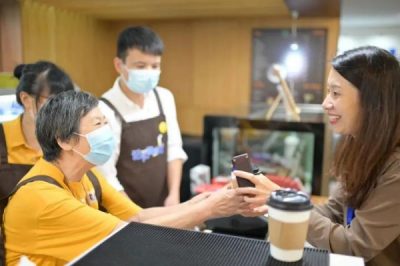
Special Prize for Combatting Ageism
Boonmerit Media | Thailand
Manoottangwai Intergenerational Online Media Campaign
To address Thailand’s increasing intergenerational friction, TV production company Boonmerit Media launched an online platform called “Manoottangwai” (multigenerational) that conveys stories that raise awareness, bridge the gap, and build a positive mindset between people of different generations. The initiative targets older people to help them achieve an active lifestyle, and it targets younger people to help them understand that post-retirement wellbeing (financial, physical, and emotional) requires preparation. Most importantly, Manoottangwai aims to bridge the country’s widening generation gap and create a society that is inclusive to all ages. Younger and older people work together to produce content for Facebook, YouTube, and TikTok. They present diverse and positive stories of older people, like a food delivery service managed by a 75-year-old grandma and her 20-year-old grandson, or a 62-year-old skateboarder. In just three years, Manoottangwai has over 1 million followers and 10s of millions of users engaged.
In light of the UN’s global campaign against ageism as part of its Decade of Healthy Ageing, the HAPI Selection Committee awarded a special prize to Boonmerit Media for its intergenerational initiative to combat ageism.
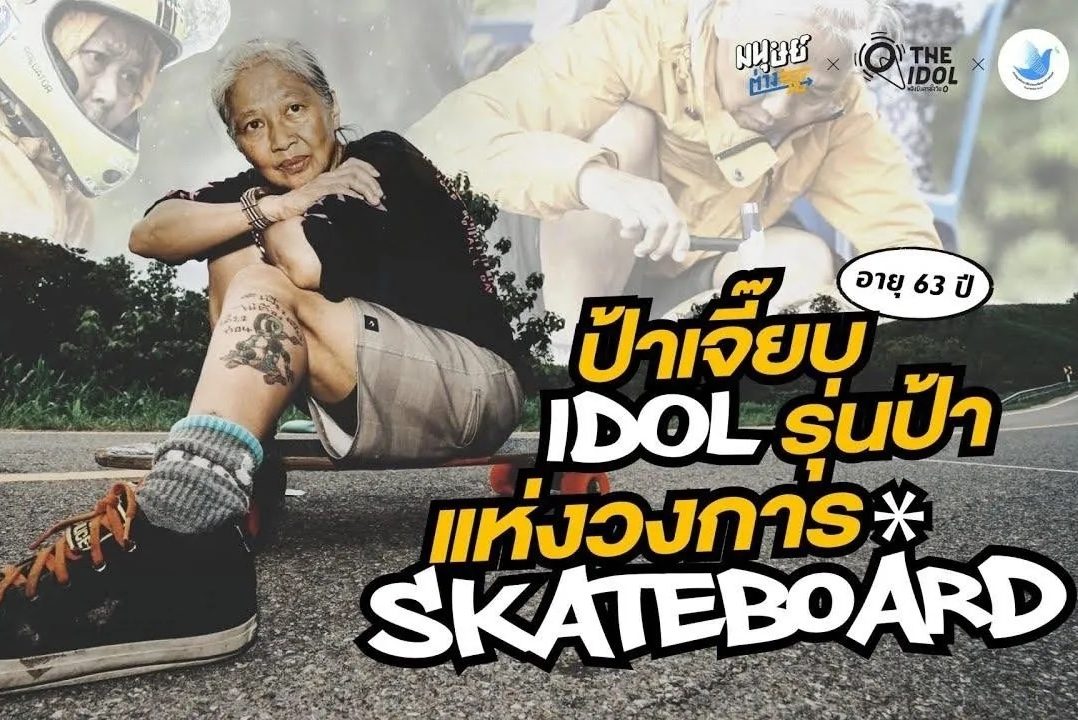
2022 SECOND PRIZE
Technology & Innovation (Tie)
SILVER WOOD Co., Ltd. | Japan
VR Dementia
Mediva inc. | Japan
“Dementia Eyes”—Experiencing Dementia through AR
Community-Based Initiatives
Odekake Rehabilitation Promotion Council | Japan
Initiative to Promote Outings for Older People and Commercial Revitalization
Supporting Self-Reliance
Takarazuka City Collaborative Community-Building Council | Japan
Healthy and Purposeful Employment Trial
Meet the Artist
